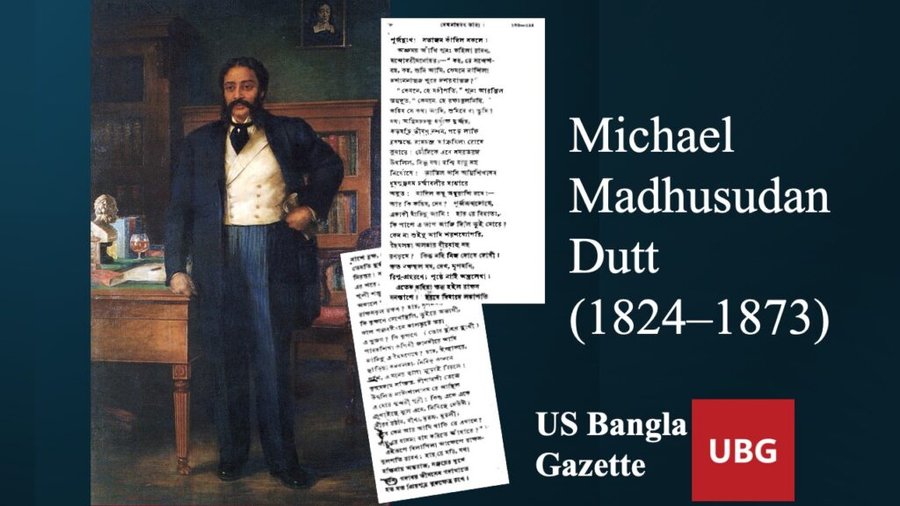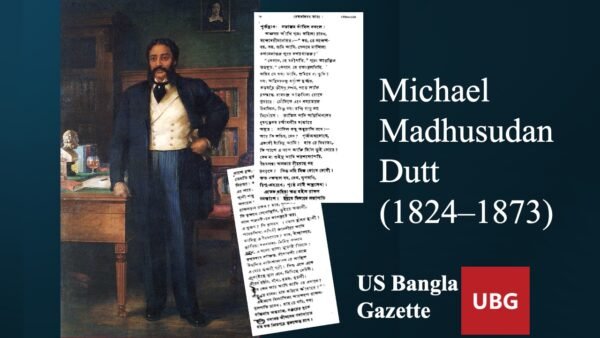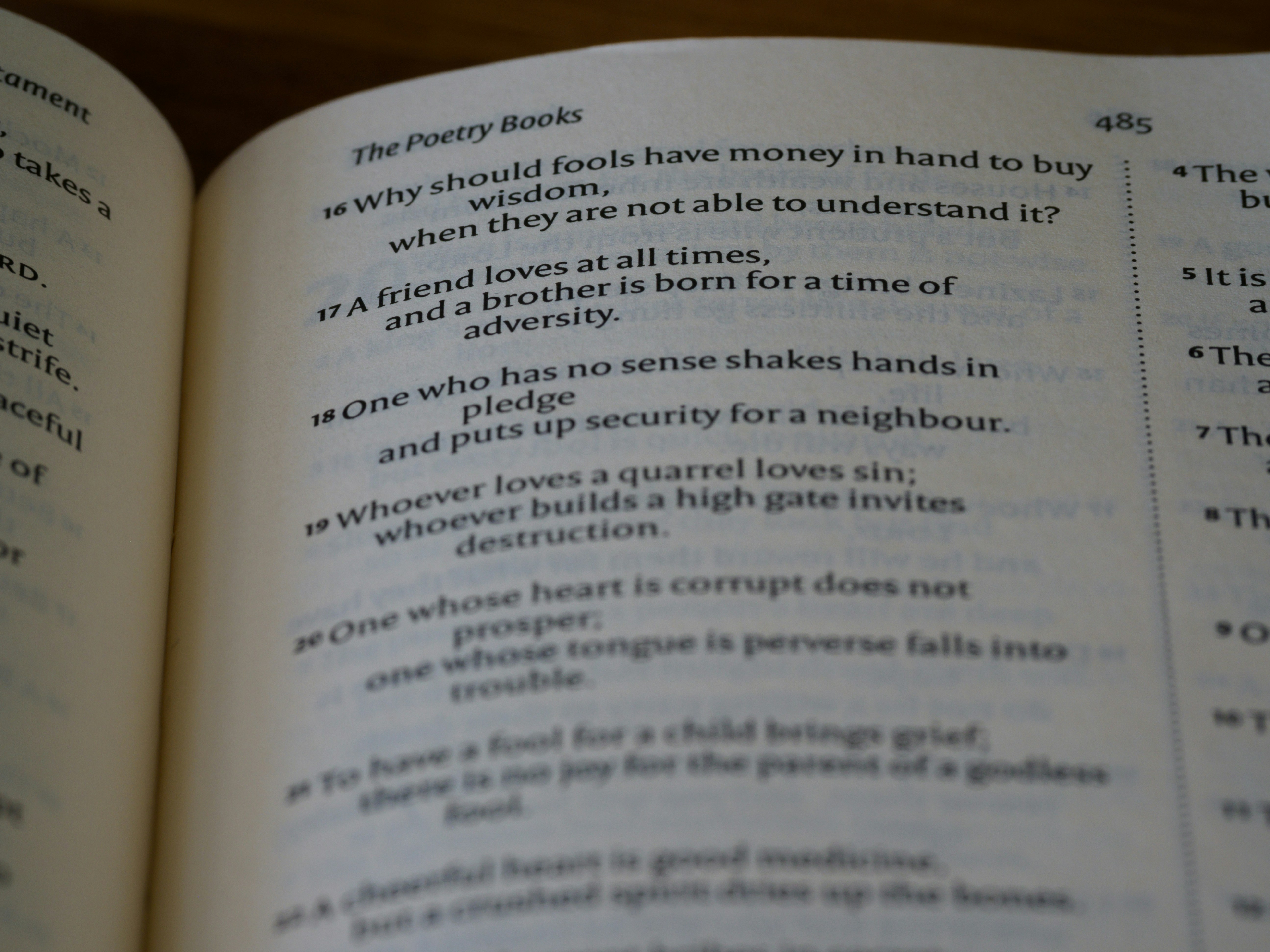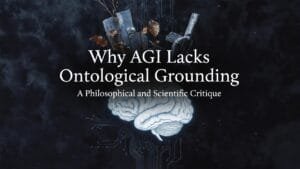The Universal Appeal of Michael Madhusudan Dutt


Synthesis of Eastern and Western Literary Traditions
Michael Madhusudan Dutt (1824–1873) stands out as a transformative figure in the landscape of Indian literature, mainly due to his pioneering blend of Eastern and Western literary elements. Dutt’s profound admiration for revered Western literary figures such as Homer, Virgil, Dante, and Milton played a pivotal role in shaping his narrative strategies and thematic concerns. By channeling these literary giants’ legacy, he crafted a distinctive voice that resonated with Indian audiences while also appealing to international readers.
His magnum opus, Meghnad Badh Kavya, is a prime example of this synthesis. In this epic work, Dutt reinterprets the classic Indian epic, the Ramayana, through an innovative lens steeped in Western literary forms. This intercultural dialogue highlights Dutt’s literary versatility and showcases his unique capability to merge diverse traditions. In doing so, he enriches the narrative with complex characters exhibiting a range of human emotions, fostering a more empathetic engagement with legendary figures.
Dutt’s approach transcends mere imitation; rather, it embodies a genuine synthesis where Western influences enhance the depth of Indian storytelling. The grandeur of his poetry, reminiscent of the epics of antiquity, coexists with an appreciation for Indian mythological themes. This blending grants timeless qualities to his narratives, allowing readers to connect with profound moral and philosophical questions that traverse cultural boundaries. Dutt’s works thus emerge as a bridge, uniting disparate literary worlds and affirming the universality of human experiences. By integrating Eastern themes with Western stylistic devices, he not only revitalized Indian literature but also contributed to the broader canon, signifying a noteworthy merging of cultural narratives that continues to resonate today.
The Introduction of Blank Verse in Bengali Poetry
Michael Madhusudan Dutt is often credited with introducing blank verse into Bengali poetry, marking a pivotal shift from traditional rhymed structures. Before Dutt, Bengali poets predominantly adhered to strict metrical forms and rhymed couplets, which, while rich in lyrical quality, constrained the depth of artistic expression. Dutt’s pioneering use of blank verse, a form that eschews rhyme while maintaining a consistent meter, provided Bengali literature with a tool that fostered greater emotional and intellectual freedom.
This innovation expanded the expressive capabilities of poets and aligned Bengali literature with global literary practices. Blank verse, as used in English literature by masters such as John Milton and William Shakespeare, allows for the natural rhythms of speech, thus enabling poets to convey complex themes and sentiments nuancedly. Dutt’s strategic implementation of this form transformed the landscape of Bengali poetry, allowing poets to explore new subjects and themes, such as love, heroism, and social critique, with newfound depth and complexity.
The significance of Dutt’s contribution extends beyond his literary output; it has had lasting implications for future generations of Bengali poets. By embracing blank verse, Dutt established a precedent that encouraged subsequent writers to experiment with more complimentary forms of poetic expression. This shift enriched the Bengali literary tradition and facilitated its dialogue with broader global literary movements. Today, Dutt’s influence can be seen in the works of contemporary poets who continue to leverage the potential of blank verse, underscoring his enduring legacy as a bridge between cultures through the transformative power of literature.
Exploration of Universal Human Themes
Michael Madhusudan Dutt’s literary oeuvre is distinguished by its profound engagement with universal human themes, making his work resonate with diverse audiences across cultures. Central to his narratives is the exploration of tragic heroism, which manifests most vividly in the character of Meghnad. Dutt’s rendering of Meghnad draws parallels with iconic tragic heroes found in the works of Shakespeare and Milton, encapsulating the essence of noble suffering and moral complexity. Meghnad, much like Hamlet or Satan, grapples with internal conflicts that highlight the struggle between personal desire and societal expectations, a theme that remains relevant regardless of cultural context.
Moreover, Dutt’s deep emotional insights allow readers to engage with characters intimately. His poetry and dramas evoke feelings of love and loss, encapsulating the human experience in ways that transcend geographical barriers. The momentousness of love, the agony of loss, and the quest for identity resonate universally, suggesting that despite cultural differences, human beings’ emotional landscapes are fundamentally alike. Dutt’s ability to portray these intricate emotions reflects a collective existential anguish that speaks to readers from all walks of life.
Issues of alienation and belonging are also prevalent throughout Dutt’s work. His struggles with identity, particularly as a Bengali poet navigating a colonial context, inform the richness of his characters and narratives. These struggles provide a backdrop against which themes of displacement and the search for a coherent self are articulated. Dutt’s reflections on identity and belonging create a dialogue that encourages readers to reflect on their own experiences, thus bridging cultural divides through literature. The complexity of these themes not only underscores Dutt’s literary genius but also affirms the enduring power of storytelling to connect humanity on a deeper emotional level.
Legacy of Universality and Rebellion Against Orthodoxy
Michael Madhusudan Dutt remains a significant figure in global literature, possessing a profound cosmopolitan perspective that transcends cultural boundaries. His experiences in Europe shaped his worldview and introduced him to progressive ideologies that would challenge the orthodox conventions prominent in his native Bengal. Dutt’s sojourn through European societies is reflected in his writings, which exhibit a distinct blend of Eastern and Western literary traditions, further emphasizing his commitment to universal themes such as justice, freedom, and individual expression.
One of the pivotal moments in Dutt’s life was his conversion to Christianity, symbolizing his rebellion against the rigid sociocultural norms of his upbringing. This transformative decision altered his personal journey and found critical expression in his literary works. Dutt’s embrace of Christianity illustrates a broader quest for individual freedom and individuality that resonates throughout his poetry and plays. This rebellion became a crucial element of his literary innovation, as he sought to challenge prevailing notions of identity and belief systems through his art.
Moreover, Dutt’s mastery of multiple languages enabled him to draw on diverse literary influences, thus enriching his themes and styles. His pioneering approach paved the way for future writers to explore complex narratives that reflect the human condition in all its multifaceted glory. The themes of justice and morality in his writings resonate deeply with modern readers, emphasizing the timeless nature of his work. Through his legacy, Dutt solidified his position as a trailblazer in universal literature, inspiring countless individuals to embrace their individuality while advocating for freedom and human rights in an increasingly interconnected world.








